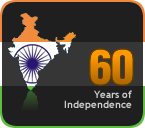Me being what I am, I have started thinking about those bygone days when things were entirely different. My mother has told me about a lot about the way people lived in those days, about traditions and customs. These traditions and customs continued till the early part of the 20the century, with the joint family system being prevalent. It was the elders who decided everything. When a daughter-in-law conceived for the first time, it was the father-in-law who conveyed the good news to her father on a post card, though they would be living within a distance of 10 miles. The very next day her family would come over to her in-law’s place with sweets and fruits to show their happiness and to congratulate each other.
Even in those days it was a well-known fact that the third month of pregnancy was a risky period. So to safeguard the pregnancy, and also to pamper the young mother-to-be in her morning sickness period, she would stay with her parents for a month.

After that in the fifth month, the ceremony known as ‘valaikaapu' would be celebrated. It was a social function, when the young mother-to-be’s hands would be decked with gold, silver and glass bangles. Usually, the ceremony would be conducted at her mother’s place and ladies (friends, relatives) were invited to partake in the function, including folks from her in-law’s place. A professional bangle seller would be invited to supply glass bangles not only to the mother-to-be, but to all women present, who were allowed to choose whatever and however many they felt like having.
I had also witnessed the valaikaapu ceremony of my older sisters, when I must have been 10 and 12 years old.
One thing that stands out in my memory is the taste of the savoury that was made for this function called ‘varavarisi’. Though it is more than 60 years since I last tasted it, I can still remember and feel its taste. Some 10 years ago, I tried to make it, but did not succeed fully. The taste did not come anywhere near the one of the bygone days.
My theory for the reason for the function is that the different kinds of bangles on the hands would distract the onlooker’s attention from the growing girth of the waist of the expecting mother, and avert the ‘evil eye’.
This function may be compared to the one in the United States – the ‘baby shower’.
At the baby shower, the expecting mother is invited to a friend’s place where other friends gather and shower her with gifts needed for the baby. And there is much rejoicing and music, and roasting and toasting.
In the eighth month the ceremony called ‘Seemantham’, a religious ceremony is performed at the husband’s place, conducted with Vedic rites by learned priests. This ceremony includes the husband, too.

This picture was taken at the ‘Seemantham’ of Raja, my husband’s brother, which we conducted in Pondicherry at our place (in 1960). You can see that his wife’s hands are already sporting the bangles.
The 'Seemantham’ is followed by ‘Poochoottal’, which means decorating with flowers.And the expectant mother's hair is bedecked with flowers. This is done by the husband’s sister who also offers her a new saree. A ceremony called ‘Appam kozhakattai’ follows, when two kinds of sweets are prepared, and offered first to the mother-to-be and distributed to all those present. There is much singing and rejoicing.
All this changed in the 1940s, when young men from South India started going to the north, mainly Delhi, Bombay Karachi and Calcutta, in search of jobs. Once they settled down there, with a good job in the government or a well know n company, they were considered eligible for marriage. Even before they could realise what was happening, they were asked to tie the knot (thrice!) around the neck of the girl chosen by their parents, and settled down as family men.
I was one such bride. Delhi in those days was very, very far off from our native place in Kerala – a distance of three to four days’ journey by train. Today the world has become small and closer. When I conceived for the first time, we were the ones to write to our respective parents, informing them of the news. In those days it took more than a week for a letter to reach our parents, unlike today, when one can reach anyone on any corner of the earth at the touch of a button in a few seconds.
I was the first one in the family to leave our native state immediately after marriage, and settle in Delhi. My sisters and my elder brother were settled in our native state (another sister was in Delhi, but she came there only after two of her children were born). It was the same with my husband’s family also - he was the first to go to Delhi in 1940. So to accommodate and suit our convenience, all the traditions and customs had to be changed. So the 'valaikaapu' and 'seemantham' were performed on the same day at my husband’s parents’ place, when we went down south, as directed by the elders in the family.
I went to my parents’ place for the delivery from there. And believe it or not, my husband first saw his first-born when the baby was six months old, when we joined him in Delhi.
This system continued with Raji, my eldest daughter also, in the late 1960s.
Amongst later couples, the trend changed. Many fathers-to-be don’t go through the ‘seemantham’ ceremony, whereas their wives look forward to the ', varavarisi' ceremony which is then conducted at their mother’s place where they come for the confinement. In my own family, the 'valaikaapu' ceremony for my two younger daughters was conducted like this, in the 7th or 8th month of pregnancy when they came home.
Another trend in the lifestyle was created by the 1970s when young men after getting their Master’s degree started moving to the US for higher studies. Our son Bala was one among them. Nowadays every family has at least one son or daughter in the US. They come home to get married to their own chosen partners, or in some cases, chosen by their parents. Some get married in the US itself. Children born in the US automatically become US citizens, so all these young people settle there and have their babies there. So it is for the parents, or at least the mother, to help out in these times.
The parents go there with happy thoughts of conducting 'seemantham' and 'valaikaapu', or at least the 'valaikaapu', ready with sarees, veshtis and bangles. A few parents going there are lucky; the children go through the functions willingly, or at least oblige their parents.
Even if the parents find it difficult to go to help out with the baby, the father-to-be is well trained to take care of the newborn baby. He is also present when the baby is born, and the first one to have a look at the baby. The new father also gets maternity leave of two months.
In the 1980s when my grandson Kartik was born, both grandmothers were unable to help them for various reasons. My daughter-in-law Jaishree had a baby shower, arranged by her friends and colleagues. My son Bala managed his office (he was running his own advertising agency), took care of his wife, cooked for her and bathed the new born in the traditional manner (by massaging the baby with oil before the bath) and took great pride in doing that.
My grandson Sankar, whose daughter was born there about four years ago, was very good at changing diapers, and giving her baths, though both I and my daughter were there to help out. He enjoyed the role thoroughly.
This is the situation now – I wonder what the future hold for today’s children.
******************************************************************************************
Recipe for Varavarisi.
Ingredients:
Channa whole (kadalai) – one cup
Urud dal whole – one cup
Moong dal (pacha payaru, green gram) – one cup
Lobiya (Vellai payaru, black eyed peas) - one cup
Moonfali (Verkadalai, Peanuts) – one cup
Horse gram (Kollu) – half cup
Mochai kottai ( a kind of broad bean, its English or Hindi equivalents is not known to me) - half cup
Rice – half cup
White Til - ( vellai ellu, Sesame seeds) - two table spoonfuls.
For the masala: add one teaspoon of chili powder (or according to taste) with one tablespoon of salt, half a teaspoon of asafetida (hing, perungayam) powder, and pinch of turmeric powder to a cup of water. Mix well and keep aside.
Break a coconut, and remove the flesh from the shell, cut it into small pieces and deep fry in oil and keep aside.
Clean and soak all items separately overnight. Next morning drain off the water and dry the grains separately, spread evenly on a cotton material on the floor.
Heat a kadai, (or wok) and slowly roast each of the dried pulses separately, one after the other. When they are nearly roasted, add a spoonful of the masala mixture to each of the pulses, and roast till all the water is absorbed.
Remove from fire, and cool separately. When everything is really cool, mix all together really well with the coconut pieces, and store in airtight containers. This will last for more than a month.
This is very rich in protein, which is a must for the expectant mother.
***************************************************************************************
Valaikappu Picture courtesy Internet





